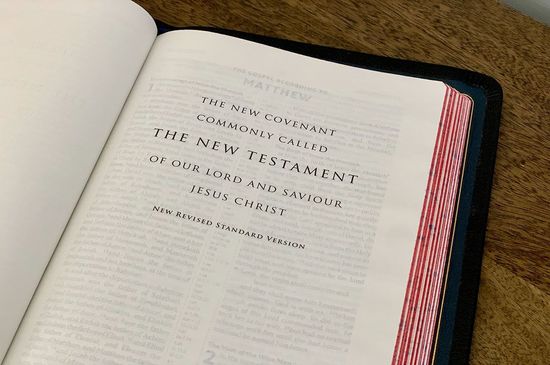Have you ever been on the verge of sleep in the middle of a long lecture or sermon when suddenly the speaker takes a turn and begins to tell a story?
Interest is now sparked. We’re drawn to stories.
Stories are a point of connection, and they can be amazing tools to teach a lesson without boring listeners to tears with fact after fact, stat after stat, etc.
Jesus knew this. And during His ministry on earth, He told many stories recorded in the New Testament.
But not just any old stories. Matthew 13:3 tells us that “He told them many things in parables…” (ESV).
In fact, there are about 31 of Jesus’ parables in the synoptic gospels, which include Matthew, Mark, and Luke.
Considering this, Jesus Christ, who created us and knows us better than we know ourselves, surely had good reasons for using this method of teaching. So let’s learn more about the purpose and mechanics of parables. We’ll cover:
- What are parables?
- Why did Jesus use them?
- Looking at the parables in Scripture
- Are Jesus’ parables still relevant today?
Let’s start with definitions. Though the word “parable” isn’t all that common in today’s conversations, you’ll probably find its meaning to be familiar.
What are parables?
Parables are short stories that teach a moral lesson. Unlike metaphors or similes, parables use the whole story to teach a profound or fundamental truth.
That might sound similar to the definition of a fable, which is also a story meant to teach a general life lesson. However, most fables personify animals or other non-human elements, while parables tend to portray humans in more realistic or familiar situations. Additionally, parables are more likely to teach a spiritual lesson along with practical or social wisdom.1
The Greek word for parable is parabolé, which means to “cast alongside.” The truth, in parables, is cast alongside a story to make it easier to understand and remember.
Parables are an excellent way to simplify a difficult concept, breaking things down into terms and situations we can understand.
They also can demonstrate the meaning and significance of a complex truth while showing how it can be applied to our lives.
The parables of Jesus used common parts of life—like farming, property management, or baking—to create stories that were relatable to His audience.
The religious leaders of Jesus’ time were not known for their ability to teach in easy-to-understand, interesting ways. They were more prone to quote long passages of Scripture with little application or interpretation.
Jesus used parables as a radical new way of reaching people of all ages, all abilities, all levels of education, etc. After all, to be able to apply deeper concepts to familiar constructs takes more than mere memorization of Bible verses. That’s why those who listened to Him “were astonished at His teaching, for He was teaching them as one who had authority, and not as their scribes” (Matthew 7:28–29, ESV).
Why did Jesus use parables?
Jesus used parables because He wanted powerful truths of Scripture to be available and understandable to everyone—not just to the elite religious scholars of the time.
The teaching style of the current religious leaders was impersonal and mostly information-based. They were more interested in maintaining their elevated status, wanting respect and authority for all the Scripture they knew. And it wasn’t uncommon for them to use Bible verses out of context in order to support their own agendas.
Jesus’ methods were in contrast to this practice. He knew it would be more useful, meaningful, and memorable to teach through these simple, relatable stories.

Photo by Mike Erskine on Unsplash
Embedded in each parable are principles that are timelessly applicable. And as always, Jesus’ main message is that He loves us and wants every one of us to be in heaven with Him for eternity.
Jesus’ teaching style showed love and compassion while He told stories rich with meaning. His words gently guided the listeners toward truth without condemning or judging the crowd.
Here are 30 of Jesus’ parables divided into six categories.
- Parables about forgiveness
- Parables about love
- Parables about stewardship
- Parables about spreading the gospel
- Parables about the principles of Christian living
- Parables about Jesus’ soon return
Each section below lists parables by category, as well as a short summary and verse references so you can do your own additional research.
Parables about forgiveness
Jesus offers forgiveness whenever we ask for it (1 John 1:9). These parables are about God’s mercy and the peace we receive from extending that spirit of forgiveness to others.
The unforgiving servant (Matthew 18:23-35)
In this parable, a man was forgiven a large debt by his employer. However, after being forgiven, the man found someone who owed him a small amount of money and demanded immediate payment—reflecting none of the mercy he had just received.
One of Jesus’ principle teachings was the importance of forgiving others in the same way we’ve been forgiven for our sins. When we mess up, Jesus is faithful in forgiving us when we sincerely come to Him. In the same way, Jesus expects us to show that same spirit of mercy toward people who have wronged us.
The prodigal son (Luke 15:11-32)
A father of two sons watched his youngest take his inheritance and squander it. The prodigal son spent the money on parties and fake friends. When the money ran out, the son was so desperate and starving that he got a job at a pig farm. He even considered eating the pig slop because he was so hungry!
The son then realized that even his father’s servants received good food and accommodations. He decided to return home and ask his father to hire him. When he arrived, however, his father ran to meet him and welcomed him back with a party and rejoicing.
While this was happening, the elder brother was upset that his indulgent brother was being celebrated instead of his own diligent labor. He was focused on recognition for his work, rather than realizing He was already a fully-loved, appreciated part of the family. And his father would have reacted the very same way if he was in the place of his brother.
The parable of the prodigal son holds a beautiful message of redemption and unconditional love. The father in this story is a representation of Jesus. No matter how far any of us stray, the Father always welcomes us with open arms if we come back.
Parables about love
1 John 4:16 says that God is love. His character is love, and His message is love. Is it any wonder that Jesus took His time telling parables about His love for others and how we can have that same love in our lives?
The lost sheep (Matthew 18:10-14)

Photo by Martin Schmidli on Unsplash
A shepherd had 100 sheep but lost one. He left the rest of the sheep to search until he found the lost lamb.
Again, we get a new perspective of Jesus’ unfathomable love for humanity. It shows the length He will go to bring one lost person home. This parable shows how Jesus is interested in each individual, and that He would’ve still died on the cross even if only one person could’ve been saved.
The pearl of great price (Matthew 13:45-46)
A merchant was in the market for good pearls. When he found an expensive one he simply couldn’t pass up, he sold all he had to buy it.
In a like manner, Jesus gave everything He had to buy our redemption. That included giving His own life so we could have a way out of Satan’s powerful grip of sin, fear, and shame.
The friend at midnight (Luke 11:5-13)
This parable came right after Jesus taught His disciples how to pray. He showed them the Lord’s prayer as an example, then He continued with a story encouraging us to boldly bring our requests to God.
Jesus poses this situation:
What if a friend came to stay with you after a long trip, and you had no food to give them? Would you hurry to the house of another friend, even though it’s late at night, and ask them to give you food?
It’s not hard to imagine the response you might get.
“…‘Don’t bother me! The door is already locked, and my children and I have gone to bed. I can’t get up to give you anything’” (verse 7, CSB).
But the friend gives you food anyway. Because you asked.
Jesus wants us to know that we can come to Him in prayer with anything. No request is too big, too small, too silly or embarrassing, etc. He gives us permission to come to God “with shameless boldness” (verse 8, CSB) and ask Him for what we need. And He will answer our prayers.
“So I say to you, ask, and it will be given to you; seek, and you will find; knock, and it will be opened to you. For everyone who asks receives, and he who seeks finds, and to him who knocks it will be opened” (verses 9-10, NKJV).
The lost coin (Luke 15:8-10)

Photo by Eduardo Soares on Unsplash
A woman with ten silver coins lost one. She searched until she found it, then called her neighbors to rejoice with her.
This parable is similar to the parable of the lost sheep. It shows us the great love God has for every single person in existence, and gives us a glimpse into what happens in heaven when someone accepts the message of salvation. Luke 15:10 says,
“There is rejoicing in the presence of the angels of God over one sinner who repents” (NKJV).
After reading this parable, there can be no doubt that God takes special interest in each one of us.
Parables about stewardship
It’s easy to forget that God blesses us with all the good things in our lives (James 1:17), even resources like money and time. Stewardship is about how to manage those resources in the most efficient manner, which shows our gratitude and faithfulness to God.
Maintaining good stewardship isn’t easy, but it’s an essential virtue in the development of good character. So Jesus made sure to address the subject in His parables.
The rich fool (Luke 12:16-21)
A rich farmer had a bountiful harvest—more than he could use or had room for. The man pulled down his barns and built bigger ones to accommodate the crops.
Sharing it didn’t even cross his mind—he was more concerned about always having more than enough food, so he could “take it easy; eat, drink, and enjoy” his life (verse 19, CSB).
The parables of Jesus often hold warnings about getting rich. The danger, Jesus says, is not in the money itself but in the way people start to trust in wealth and earthly power more than the real power and riches of God and His Kingdom.
The rich fool was so focused on the wealth he was hoarding that he neglected so many essential things in life: helping others, building friendships, and starting a relationship with God.
The ten talents (Matthew 25:14-30)
A man gave three employees a sum of “talents” (a form of currency/money) to keep for him before going on a trip. The first two invested their talents and made a profit, but the last employee buried his talent in the ground, making it essentially worthless.
God blesses people with talents. Talents are resources like money, time, or special abilities that can be used to further the gospel message and to show Jesus’ love to others.
In the parable of the ten talents, (which is a great play on words), the third servant buries the treasure he has been entrusted with instead of using it as an investment.
In the same way, when Christians are not willing to use their talents for the right cause, those talents become useless.
Parables about spreading the gospel
Part of Jesus’ mission on earth was to prepare His followers to be able to share His message of love and the plan for salvation to others. Jesus wanted to prepare people to tell the world about His astounding love for them. He wanted them to know He has a plan and is coming back.
The lamp (Mark 4:21-25)

Photo by Vladimir Fedotov on Unsplash
Jesus describes the impracticality of hiding a lamp under a basket. Why would we want to hide the light of something made to dispel darkness?
Matthew 5:13-16 also expresses this sentiment, noting that the “light” we have been given we should “shine before others, so that they may see your good works and give glory to your Father in heaven” (CSB).
Once we have an understanding of God’s love for us, it’s meant for sharing. And we can share the gospel by doing good things in our everyday lives and bringing glory to God.
The sower (Matthew 13:1-23)
A farmer sows seeds that end up on four different kinds of soil.
- The side of the road
- Rocky places
- Thorny areas
- Good soil
Jesus explains that this parable of the sower is about spreading the gospel and how people will accept it.
The seeds that fall on the side of the road get eaten by birds. That represents people who do not try to understand spiritual concepts. Like the birds, Satan snatches the truth from them.
The seeds on rocky soil refer to people who hear the gospel and get caught up in the excitement, but they do not continue to study or maintain their relationship with God. So their faith withers away. (Maybe it wasn’t real to begin with.)
Seeds that fell among weeds and thorns represent people who listened to God’s message, but the worries and preoccupation with life choked out the truth. They let fear get the best of them.
People who hear God’s message of salvation and surrender themselves to Him are like the seeds that fall onto good soil and grow into strong plants.
The mustard seed (Matthew 13:31-32)

Photo by Joshua Lanzarini on Unsplash
A man planted mustard seeds in his field. The seeds are tiny, but they grow into a huge tree that provides a welcoming shelter for many birds.
Jesus wanted to make it clear that He can work with even the smallest amount of belief. We all have to start somewhere! Regardless of the size of our faith, Jesus can grow it into something big and strong—something other people could even find refuge in.
Laborers in the vineyard (Matthew 20:1-16)
A vineyard owner went to hire workers early in the morning. He agreed to pay everyone a set price for the day, and hired several workers. Later in the day he hired more, and still later he hired even more. At the end of the day, all of the laborers were paid the same, regardless of how long they worked.
The ones who had been working all day questioned the fairness of that decision.
The underlying message is that all Christians are rewarded the same–a place in heaven and eternity with Christ. Whether someone was saved yesterday or 50 years ago, it doesn’t make a difference in God’s eyes. Adventists believe that we receive salvation through faith, not through merit by doing good things or donating money to a church.
Parables about principles of Christian living
The Bible is full of instructions on how to live life in a way that will ultimately bring us peace and happiness. When we follow the principles Jesus teaches in His parables, not only can we reveal His loving character to others, but we can protect ourselves from the harmful realities of living a Godless life as well.
The log in the eye (Matthew 7:1-5)
The individual in the parable was fixated on the fact that their brother had a speck of sawdust in his eye. Meanwhile, however, the speck-fixator had been walking around with a whole plank in his own eye.
Jesus was pointing out how easy it is to look past the flaws in our lives and pick at the faults in others. Judging others is not our job, according to the Bible. Rather, we should make sure we are living a life that glorifies God and show love to everyone we meet (Luke 6:37-42).
The good samaritan (Luke 10:29-37)
A Jewish man on a trip was robbed and beaten. Two church leaders passed by him, leaving him to die. Then, a Samaritan man found him and took him to an inn, where he paid for the man to be nursed back to health.
For a little historical context, the Jews and Samaritans did not get along back then. The majority of Jewish people believed the Samaritans were condemned and unclean. This adds to the significance that after the religious leaders ignored the wounded man, who shared their beliefs and culture, the dying man’s sworn enemy had compassion on him.
The essence of Christianity is loving others, no matter their differences. Jesus often spent time with the “outcasts” of His society. Gamblers, cheaters, prostitutes, and people with contagious diseases. He treated everyone with the same amount of love.
The persistent widow (Luke 18:1-8)
A local judge who didn’t care about anyone’s well-being had the power to help a poor widow, but wouldn’t. The widow asked for his help again and again until the judge granted her request just to get her to stop!
While an exaggerated example, it was to make a point. This was another parable about persistence in prayer. Verse 1 explains that Jesus was trying to teach His disciples that they “should pray always and not give up” (CSB).
The barren fig tree (Luke 13:6-9)
A man planted a fig tree in his garden and returned every spring to see if it was going to produce fruit. Years passed, and the tree never grew any fruit, so the farmer decided he’d cut it down.
But the gardener asked if he could fertilize it and dig around it first, on the condition that if it bears fruit after one more year, then it wouldn’t get cut down. But if it continued to produce nothing, the gardener agreed to cut it down.
This parable is a reference to faith that isn’t demonstrated. People who claim to be Christians but never do anything for Christ are like the fig tree that has no fruit. They might be Christians in name only, because they don’t show Jesus’ love in the way they live.
The new cloth and the old garment (Mark 2:21-22)
In this parable, Jesus presented a well-known fact at that time. No one would sew a new piece of cloth onto an old garment, because the tear would just become worse.
The new cloth, in this parable, represents the gospel. The old cloth is our old way of living. It wouldn’t make sense to mix the two, as the old cloth would ruin the new garment. Wouldn’t it be better to let Jesus take the old things in our lives that have been a burden for so long and replace them with His way of living?
The growing seed (Mark 4:26-29)

Photo by Francesco Gallarotti on Unsplash
The main character of this parable scattered some seeds on the ground, then went about his business. Later he found out the seeds had sprouted, but he didn’t know how. Growth came about, even though he wasn’t there to see it.
Jesus is making the point that sometimes Christians spread the gospel without even knowing. By living daily life in a way that follows Jesus’ teachings, Christians are a representation of His love. And without knowing it, they are planting seeds of curiosity or faith that can grow on their own until someone else comes along to nurture that growth.
That’s why it matters how we live. We’re representing Jesus always. We never know when we might be planting seeds that will sprout!
The two sons (Matthew 21:28-32)
A father asked his two sons to work in the vineyard. The first son downright refused, but later he was sorry for being rude and went to work. The second son assured his father that he would go work in the vineyard, but never did.
This parable demonstrates how actions do indeed speak louder than words. At first, we feel a tendency to get upset with the son that refused. He should have had more respect, right?
But in the end, his actions proved to be better for everyone than the seemingly agreeable son who didn’t come through. Our words mean little if not backed up by our actions as well (James 2:26).
The hidden treasure (Matthew 13:44)
A man discovered buried treasure in a field, so he quickly went home, sold everything he had and bought the land.
The point of this parable is that the reward for following Jesus is greater than anything the world can offer us. The farmer in the story is trading a few possessions for something of far greater value. In a similar way, Christians trade the earthly pleasures, that may appear pleasing here, for eternal life.
The Pharisee and the tax collector (Luke 18:9-14)
Two men went to pray at a church. One, a religious leader, stood and prayed aloud about what a good person he was, thanking God that he was not like other people and boasting about all he did for the church.
The second man, a tax collector, stood far away from anyone else and could barely lift his eyes as he prayed for forgiveness.
The stark difference between the pharisee and the tax collector lies in their attitudes toward prayer and how they viewed themselves. The pharisee was vain and self-righteous—he made sure everyone heard his prayer. And the tax collector humbled himself (James 4:10) before the powerful God he was addressing.
It’s not hard to guess which prayer was more sincere…
The leaven (Matthew 13:33-34)

Photo by Geoffroy Delobel on Unsplash
A little bit of leaven (or yeast) spreads throughout bread dough and causes the whole loaf to rise.
Some things in life are small or minor, but they have a wide-ranging effect. Just like a little bit of yeast causes the whole loaf of bread to rise, a little bit of faith can yield big results.
This can work the other way, too, however. Sometimes just one negative thought or one sin can spread all over.
The divided kingdom (Mark 3:23-27)
A kingdom in civil war cannot stand.
The main point of this parable is that there is no way to serve God and continue to do things that go against His will. It is impossible to serve God and Satan at the same time (Matthew 6:24). We can’t be allied with both sides.
The heart of man (Mark 7:14-23)
In this parable, Jesus taught that it’s not what goes into a man that defiles him, but ultimately what comes out of his mouth (or in his actions) that shows the real state of his heart.
At the time, religious leaders emphasized ceremony and ritual, especially when it came to avoiding things perceived as “unclean.”
And often, this was done at the neglect of a sincere, humble faith. It was the works that were upheld.
Jesus was expressing that what’s inside our minds is more important than ceremony. Our everyday speech and actions are the best indicators of the condition of our spirituality, because they reflect what’s inside of us.
Parables about Jesus’ soon return
Part of Jesus’ plan to save us is to return to earth once again, this time to take His believers to heaven. The next few parables help explain this exciting and anticipated event.
The wedding feast (Matthew 22:1-14)
People were invited to attend a wedding but made excuses about why they couldn’t go. This is because they really didn’t want to be there. So, the groom opened up the invitations to everyone around, even people from the streets, and they were happy to go.
The marriage feast is a representation of heaven. Jesus offered salvation (the invitation to the wedding) first to specially chosen people (Jews), but leaders and many others rejected that message—even while acting like they accepted it. This parable portrays that heaven is for everyone. It does not matter what background anyone has or what society believes of them. As long as people are willing to listen and follow Jesus, heaven is open for them. Heaven is for those who truly want to be there.
The ten virgins (Matthew 25:1-13)
Ten young women were at a wedding, waiting for the groom to arrive so they could attend the wedding. Five had prepared for the wait by bringing extra oil for their lamps, while the other five did not. When the unprepared five ran out of oil, they begged for more. They ended up leaving to buy more oil, but then they arrived too late, and were unable to attend the wedding.
The wedding in this parable symbolizes the second coming of Christ. Since we don’t know when Jesus is coming again, this story helps us see the importance of being ready at all times.
The weeds among the wheat (Matthew 13:24-30)
A farm hand noticed that his employer’s field of wheat was full of weeds, so he asked if they should tear the weeds out. But the farmer knew that because of how close things were growing, and how similar the weeds looked to the wheat, they would end up pulling out both the weeds and the wheat.
Similar to the parable of the log in the eye, this story reveals that it’s God’s job to pass judgment, not ours. On Judgment Day, God, who knows our hearts, will determine whether individuals have been faithful or not. Christians are asked not to discriminate against others, categorizing people as “wheat” or “weeds,” but to live in harmony and show His love to everyone.
The faithful and wicked servants (Mark 13:34-37)
A homeowner left to travel indefinitely, leaving his servants in charge of his house. The servants knew they had to consistently keep the house ready for their employer’s return, since they wouldn’t know when it would be.
The exact time of the second coming of Jesus is not for us to know (Matthew 25:13). Because of this, it’s important to always be ready, just like the servants left in charge of their employer’s household in his absence.
The net (Matthew 13:47-50)

Photo by Quang Nguyen Vinh on Unsplash
Jesus compares the kingdom of heaven to the process of fishing. Nets are thrown out to collect fish, then fishermen sort through the catch later and keep the good ones.
Again, Jesus points out that it is not our place to judge, but to tell as many people about the gospel as possible.
The nets represent efforts to spread the gospel. That’s our job.
The rest is up to God. In the end, He will know which people have accepted His sacrifice and which people have truly rejected the gift of salvation.
The budding fig tree (Mark 13: 28-33)
Jesus pointed out that when the fig tree starts to grow leaves, it’s a sign that spring is approaching.
Have you ever watched for the trees along the road to go from a gloomy gray to a vibrant green? Jesus was using the example of waiting for the fig tree to bud as an indication of summer in relation to the Second Coming. Jesus provided us with signs that clue us into the nearness of His coming.
“So you also, when you see these things happening, know that it is near—at the doors! Assuredly, I say to you, this generation will by no means pass away till all these things take place. Heaven and earth will pass away, but My words will by no means pass away. But of that day and hour no one knows, not even the angels in heaven, nor the Son, but only the Father. Take heed, watch and pray; for you do not know when the time is” (Mark 13:29-33, NKJV).
The tenant farmers (Mark 12:1-9)
A man rented out his vineyard while he was traveling. He sent servants to check on the property, but the renters either beat them and sent them away or killed them. Finally, the owner sent his son, thinking that surely the renters would respect him, but they killed the son as well.
Half biography and half parable, this story stirred up trouble with the religious leaders in the audience. In the parable, Jesus was talking about the people who would eventually put Him, the Son of God, to death.
Are the parables of Jesus still relevant today?
Especially since the parables of Jesus Christ use symbols and situations to explore a concept, they continue to be relevant. In a time when hypocritical religious leaders made religion a burden, Jesus taught a radical new way of life.
Today, we live in a world where we’re bombarded with messages to look inward and follow our own inclinations. But Jesus pleads with us to look toward Him, the only source of happiness, peace, and balance.
The truth that He presented in each parable was relatable to everyone, no matter their economic circumstance or place in society. As long as their minds were open to the truth, they could understand.
Each parable holds special meaning for each reader, so we encourage you to take a deeper look and discover what Jesus might be telling you!
If you would like to further explore Jesus’ ministry on earth, check out The Life, Death and Resurrection of Jesus and The Son of God pages.
Choose an Online Bible Study
Want to keep learning? Find out more about Jesus, humanity, the plan of salvation, and how God loves you enough to sacrifice everything, just to give you a chance to choose Him.
Sometimes it can be hard to know where to start, that’s why we offer free, user-friendly, online Bible study options you can do anytime, anywhere, and at your own pace.
This online Bible school will take you through the major themes of Scripture, breaking down the Bible’s complex concepts into bite-sized pieces, which can lead you toward the answers of life’s more challenging questions.
Related Articles
More Answers
13 Bible Study Tools to Boost Your Daily Bible Reading
Bible study tools come in all types, including concordances, encyclopedias, downloadables, journaling, atlases, and more. Use these tools to enrich your study for a fuller understanding God’s Word.
How Can We Prepare for Sabbath?
How Can We Prepare for Sabbath?Sabbath is a special, consecrated time of rest each week. And to make sure we can fully embrace it, respect it, enjoy it, and “call the Sabbath a delight” (Isaiah 58:13, CSB), it can be helpful to prepare for it ahead of time. These...
Understanding The Parable of The Lost Sheep
Understanding The Parable of The Lost SheepThe parables of Jesus teach object lessons about the kingdom of God. And three parables in particular, the parable of the lost sheep, the parable of the lost coin, and the parable of the prodigal son, specifically teach about...
When Is Jesus Coming Back?
When Is Jesus Coming Back?We don’t know exactly when Jesus Christ will return. The Bible says that no one can know, not even the angels (Matthew 24:36)! That’s why the Bible discourages us from trying to set dates for His return. In the meantime, we’re encouraged to...
What Does the Story of the Prodigal Son Really Mean?
The Parable of the Prodigal Son tells the story of a wayward son, a jealous brother, and a father with unconditional love. Let’s see what we can learn from it today.
After Jesus’ Ascension: What He Did Throughout the New Testament
We first get to know Jesus, the Son of God and our Messiah, by reading the Gospel accounts of His earthly ministry. And after He died for our sins and was resurrected, He returned to heaven.
What Does the Bible Say About Debt?
Is it sinful to have debt? Does the Bible provide guidance to the borrowing and lending of money? Let’s take a look.
What Jesus’ Example Can Teach Us About Prayer and Fasting
Fasting and prayer were a big part of Jesus’ ministry on Earth. Let’s learn how Jesus’ example can teach us how to have a deeper relationship with God.
Legalism in the Bible: Definition, Dangers, and Examples
Find out what the Bible says about legalism, why it’s dangerous, and how we can avoid it today.
Who is Mary Magdalene in the Bible?
Mary Magdalene was a remarkably dedicated follower and supporter of Jesus Christ during His earthly ministry.
Should Christians Have End-Time Anxiety?
What goes through your mind when you hear about the “end times?” Do you think of a worldwide crisis that brings out the worst of humanity? Increasing government control? What about scarce resources and being on the run? Surviving the great tribulation?
The Parable of the Ten Talents
Let’s uncover Jesus’ purpose for telling the parable of the talents, including why it matters for us today.
What the Bible Says About the Second Coming of Jesus Christ
Curious what the Bible says about the Second Coming of Jesus Christ? We’ll cover the key verses and what they mean.
How Does God Want Me to Use My Money?
The Bible offers lots of wisdom on the best ways we can use our money. Learn what the Bible says about tithe, offering, providing, debt, savings, investing, and budgeting.
What Is the Parable of Cloth and Wineskins Really About?
Using an old way of thinking to do something that’s never been done before doesn’t always work. In fact, the two can be downright incompatible and doomed for failure.
Is Jesus the Only Way to Heaven?
When the Bible says Jesus is the only way to heaven, what does it mean? This page explores key Bible passages for a clearer picture of God’s desire to save us.
The Protestant Roots of the Seventh-day Adventist Church
Learn how the Seventh-day Adventist Church finds its roots in the Protestant Reformation. And discover what makes the pursuit of truth so integral to Protestantism.
What Does the Bible Say About Heaven?
The afterlife is something on all of our minds. Whether Christian or not, human beings have a natural longing to understand what’s next. And nearly every religion has some kind of explanation for it.
Adventist Beliefs
Learn how the 28 Fundamental Beliefs summarize and describe Seventh-day Adventism. They are not a checklist of requirements; instead they show how Adventists interpret and apply Scripture.
Who is Jesus
Who Is Jesus, and Why Is He So Important to Us? Jesus Christ is the central figure of Christianity. Not only is He God’s Son and our Savior, He: Is who the Bible is all about Can give us eternal life Is part of the Trinity with God the Father and the Holy Spirit Is...
Do Seventh-Day Adventists Have “Rules” For Clothing?
Many religions have guidelines on dress, but what about the Adventist Church? Discover how Adventists choose to dress based on biblical principles.
Relationships
The relationships of our lives can range from blissful to rocky, easy to difficult, fun to boring…
Prayer
Prayer is a simple act of faith with powerful life-changing effects. It’s talking to God and opening your heart to Him, just like you would open your heart to a friend.
What the Bible Says About Money
From stewardship to acts of investment and generosity, let’s explore what the Bible says about having a healthy relationship with our money.
Death
Have you ever wondered about life after death, or what some refer to as the afterlife?
History of the Adventist Church
After Jesus didn’t return in 1844 as many Millerites had expected, a small group rediscovered Bible truths that led them to start the Seventh-day Adventist Church in 1863. Here’s their story.
What Does God Look Like According to the Bible?
What Does God Look Like According to the Bible?As human beings, it’s natural for us to wonder about God’s appearance. But the Bible says very little about it. It’s not hard to understand why, though. As the Creator of the entire universe, His existence transcends our...
Jesus and John the Baptist: Their Relationship and Ministry
John the Baptist and Jesus were cousins, friends, and close coworkers in ministry. Learn the lasting significance of their relationship.
Sin
While this might seem like a complicated question, there’s a simple way to look at it. Sin is a failure to love God and love others. It is the opposite of love.
Didn’t find your answer? Ask us!
We understand your concern of having questions but not knowing who to ask—we’ve felt it ourselves. When you’re ready to learn more about Adventists, send us a question! We know a thing or two about Adventists.

































